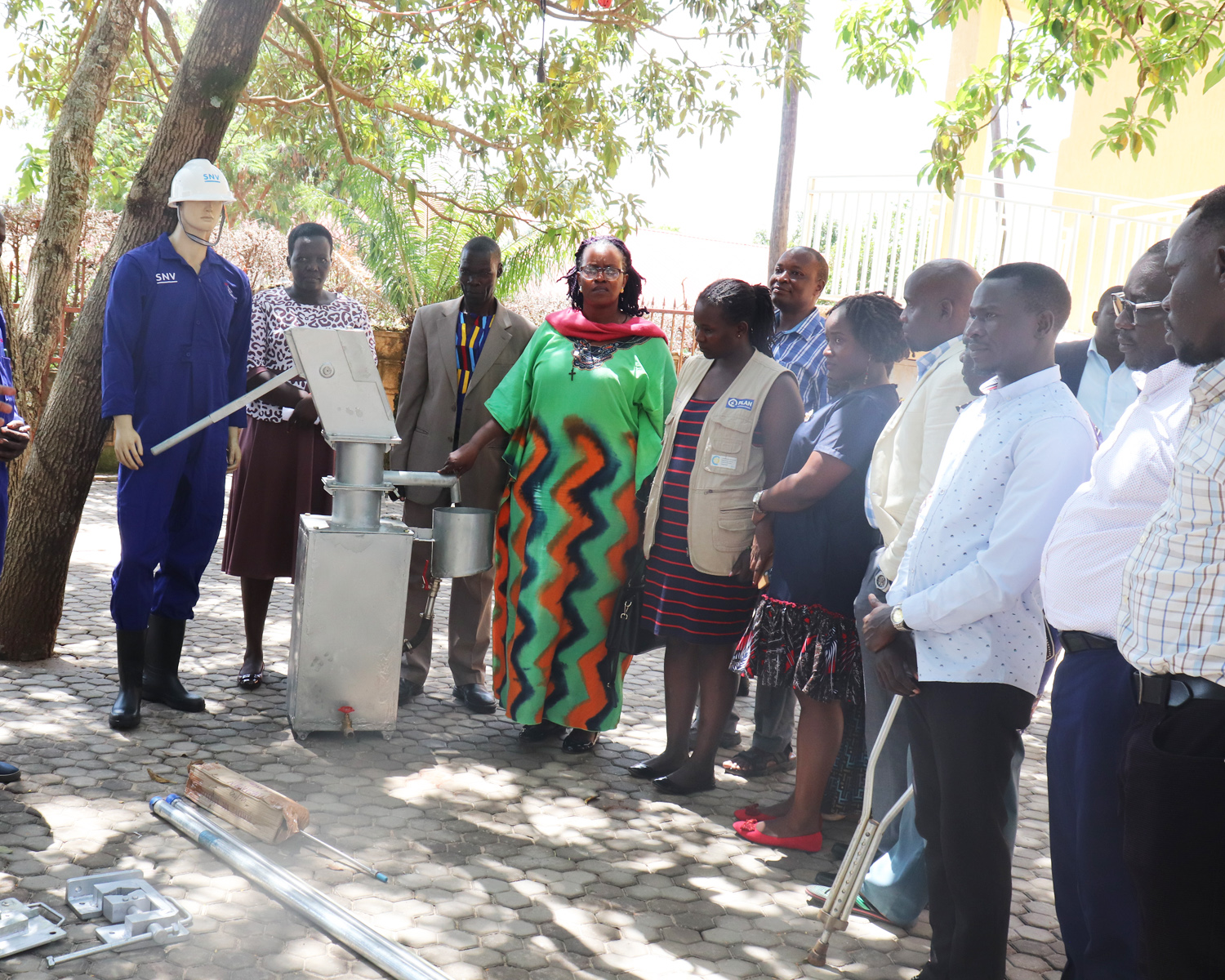LIRA, November 27, 2023- A total of 37,204 households in the four districts of Lango Sub-region in Northern Uganda practice open defecation.
The four districts include; Alebtong, Dokolo, Kole, and Lira which have 4.7 percent, 4.4 percent, 3.4 percent, and Lira 3.9 percent households, respectively practicing open defecation.
The statistic arose out of a survey conducted between June 10-21, 2023 by the Netherlands Development Organization [SNV] under Sustainable Water Supply, Sanitation and Hygiene project which indicated that, a significant number of locals in these districts still use bushes, polythene bags, and others like forests, water bodies to ease themselves.
The study also indicates that only 9,478 people representing 1.07 percent have toilet and hand wash facilities and soap, while 7,618 people representing 0.86 percent have facilities without soap and water while 98.07 percent has none.
Dr Sonja Hofbauer, the Global Technical Advisor Water Supply Services SNV attributed the practice of open defecation to lack of proper human waste management which subject community to health threats and risks such as rampant diarrhea and typhoid arising from poor hygiene and sanitation.
“Many of the households that practice open defecation are at high risk, they can suffer from diseases such diarrhea, cholera, and typhoid because of poor waste management which can be worked upon by having proper pit latrines, and toilets that can be put to use,” said Dr Hofbauer.
She said that both the homesteads and stakeholders have roles to play in mobilizing the communities against open defecation so that it is driven away and proper sanitation and hygiene practiced.
“We all have roles to play especially in mobilising our households to invest in their toilets and hand washing facilities since it is everyone’s responsibility, in that there will be no more diarrhea, typhoid,” she said.
Meanwhile, Leonard Otika, the Lira City Environment Officer said increase of the population in the peri-urban areas has also contributed to open defecation as some homesteads don’t have latrines.
He said that during day time, a number of people visit public toilets compared to night hours where most of the toilets are closed and are in-accessible.
“Putting up public toilets, ventilation pit latrines is a challenge due to limited spaces especially in urban settings which makes a number of households share with their neighbours. It has also been observed that people tend to use open spaces like road reserves, drainage spaces to ease themselves which is against the Public Health Act. We encourage the members of the public to desist from it,” Otika said.
Meanwhile Jillian Akullu, the Alebtong Resident District Commissioner said local communities need to be sensitised on the dangers of practicing open defecation through the use of various stakeholders such as the churches.
“There is a need talk to our people especially the local community on the dangers of open defecation, this will need help from different stakeholders like the cultural, religious, and political leaders so that everyone is informed,” she said.
Open defecation is an affront to the dignity, health and well-being, especially of girls and women. For example, hundreds of millions of girls and women around the world lack privacy when they are menstruating. Open defecation also risks exposing them to increased sexual exploitation and personal safety and is a risk to public health.
According to the UN Children’s Fund [UNICEF], one gram of faeces can contain 10 million viruses, one million bacteria and one thousand parasite cysts. Poor sanitation and hygiene practices [for example, not handwashing with soap after defecation and before eating] contribute to over 800,000 deaths from diarrhea annually, according to the World Health Organization [WHO].
WHO estimates that every US$ 1 invested in water and toilets returns an average of US $4 in saved medical costs, averted deaths and increased productivity. Hygiene promotion is also ranked as one of the most cost-effective public health interventions. Conversely, a lack of sanitation holds back economic growth.
https://thecooperator.news/hoima-city-street-vendors-demand-for-market-and-sanitary-facilities/
Buy your copy of thecooperator magazine from one of our country-wide vending points or an e-copy on emag.thecooperator.news
